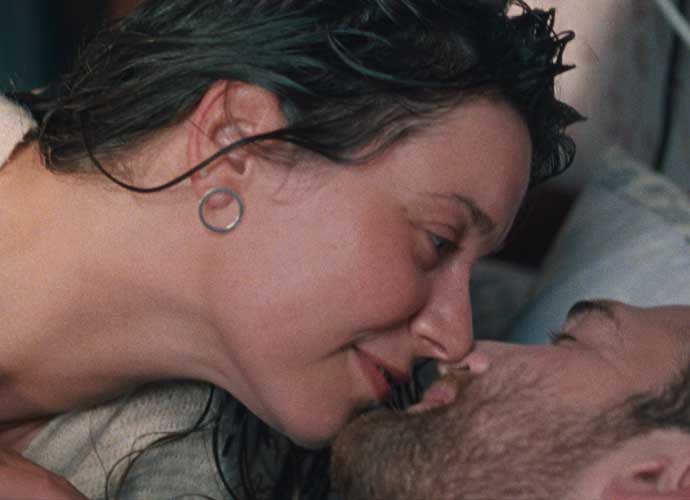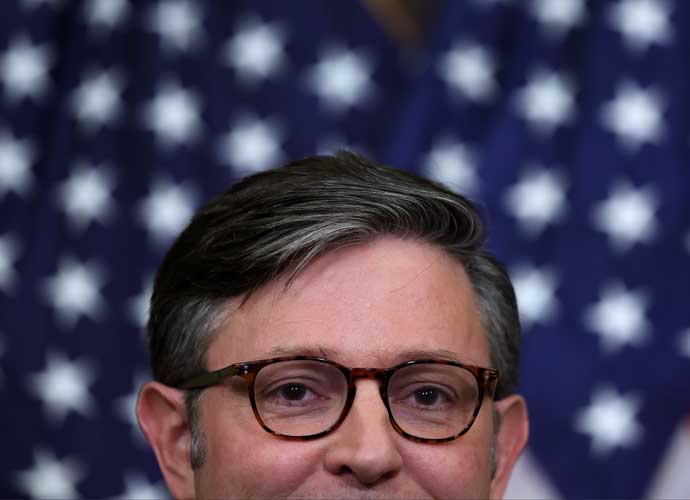‘Slow’ Movie Review: Sundance Winner Is An Interesting Deep Dive Into The Nature of Asexuality

3.5/5
Relationships are never easy. Ask any random person on the street and they will tell you that relationships are hard work. No matter how in love two parties are, there will always be those unexpected life obstacles that will put that relationship to the test, but if you know you’ve found the right person, both parties can survive those together.
But what if one of those life hurdles is something one party member doesn’t expect or understand? What if their partner is someone who identifies as asexual? This is a conflict that one of the main characters of Slow, Elena (Greta Grinevičiūtė), faces when she falls in love with and starts a relationship with an asexual man named Dovydas (Kęstutis Cicėnas), and the end result is a romance that is equally both beautiful and heartbreaking.
Slow is the sophomore feature of Lithuanian filmmaker Marija Kavtaradze, who serves as both screenwriter and director of this film and stars Grinevičiūtė, who plays a contemporary dancer named Elena, and Cicėnas, who plays an asexual sign language interpreter named Dovydas.
Kavtaradze won the World Cinematic Directing Award at the just-concluded Sundance Film Festival in Park City, Utah.
As the title suggests, Slow is a slow-paced film that takes its time with its characters, preferring to use long takes and minimal editing to let certain scenes play out and let the characters bounce off each other. This approach to its cinematography and editing very much works towards the film’s favor because as these scenes play out and get stretched out for as long as possible, the better immersed we are into this film’s world and the more we get to know the characters and their desires and traits.
This is a film that definitely takes its time setting up and developing its characters, and the end result is the creation of two characters who not only feel grounded and believable but a chemistry-filled romance between the two characters that feel real and engaging.
Grinevičiūtė and Cicėnas give fantastic performances as Elena and Dovydas – I really believed their characters and the conversations they had with each other. While the actual filmmaking definitely helped influence my emotional investment in their relationship, these two actors are very much the glue that holds this story together and without them, their romance would not have been as real or interesting.
One other thing that I really loved about this film on a technical is the actual cinematography as this is an incredibly gorgeous-looking film. The movie is shot in 16mm. While I’m always going to be biased towards movies that are shot in this format as 16mm helps give a picture a cinematic look with its grainy aesthetic, this is a film that very much benefits from being shot in this style. Similar to other films that are shot in this format like Darren Aranofsky‘s Black Swan, the 16mm look really gives a cinematic quality to Slow that is very much lacking in other romance films like this, making for a wholly unique experience.
Overall, this is an incredibly well-made film from a directing, cinematography, writing and acting perspective that I enjoyed every single minute of watching, and while the story had some room for improvement as I can’t really say that the film entirely sustained my interest from beginning to end (this was especially the case during the second act where I felt the story beats felt a bit repetitive) the film definitely had my attention in the first act and eventually won me over by the third act. Despite the movie being under two hours, I did feel the film overstayed its welcome a little too long as I thought some scenes could have been trimmed, but in spite of that, this is an incredible movie that I loved and that I can’t wait to see again.
RELATED ARTICLES
Get the most-revealing celebrity conversations with the uInterview podcast!








Leave a comment